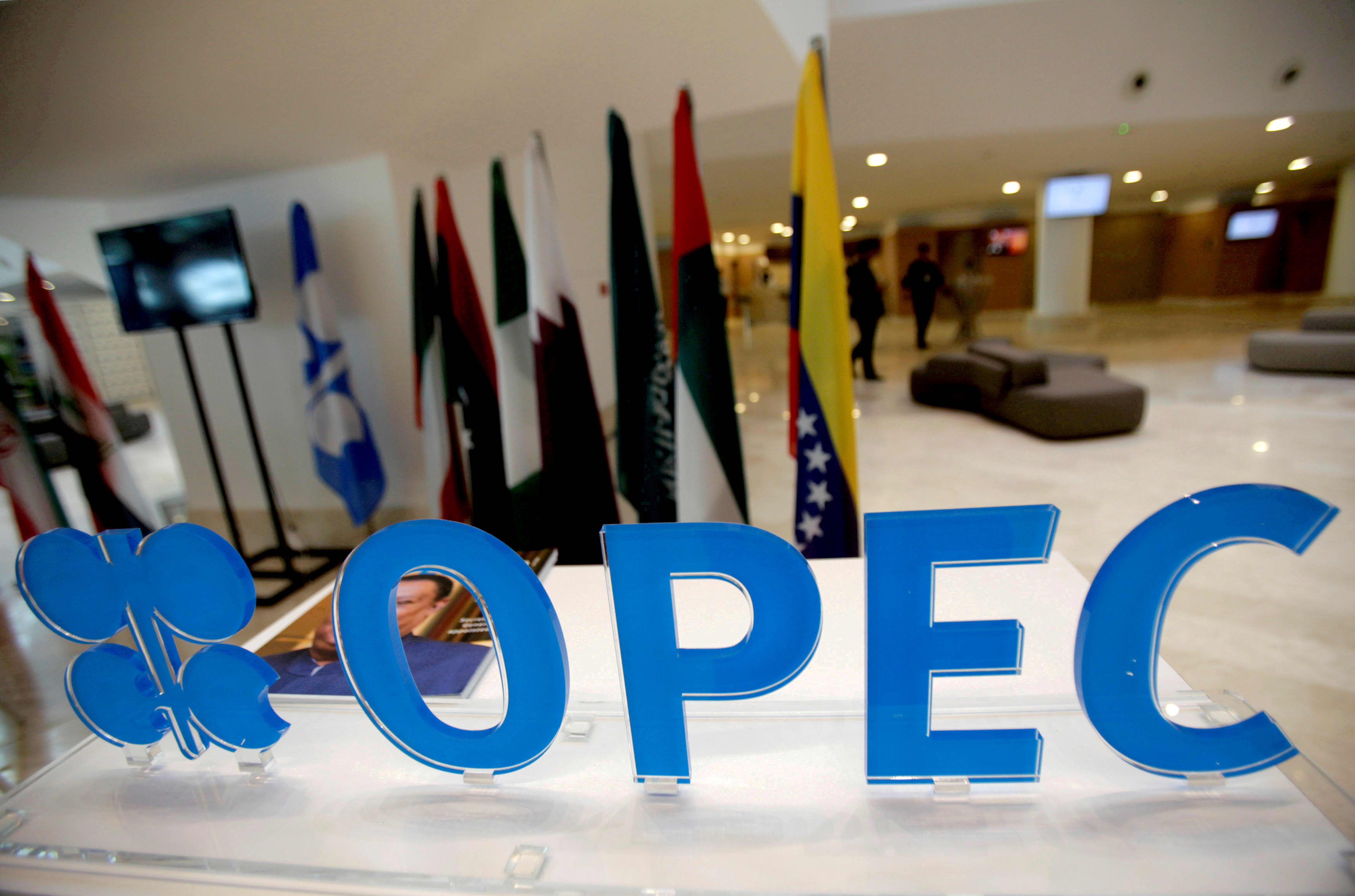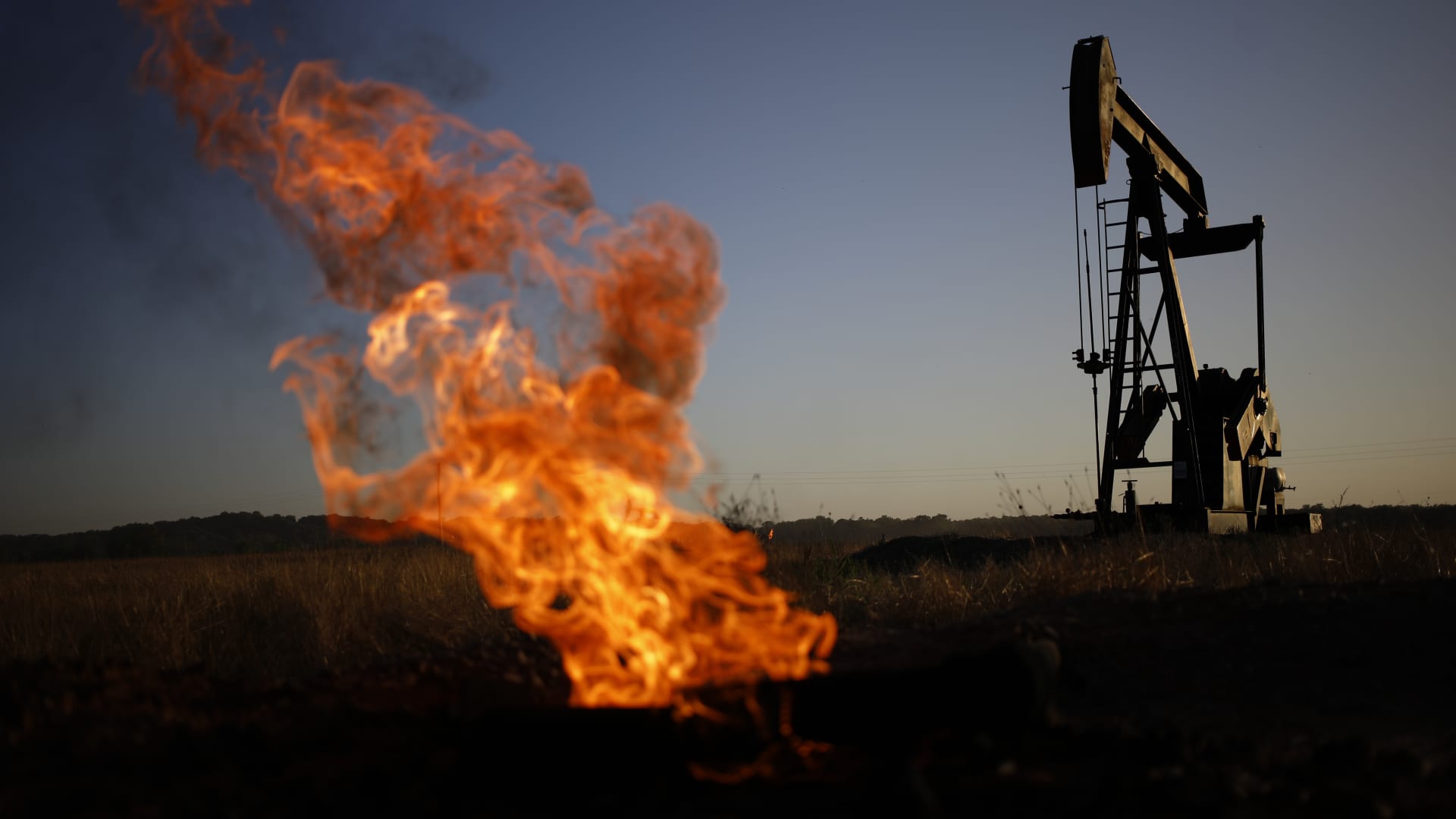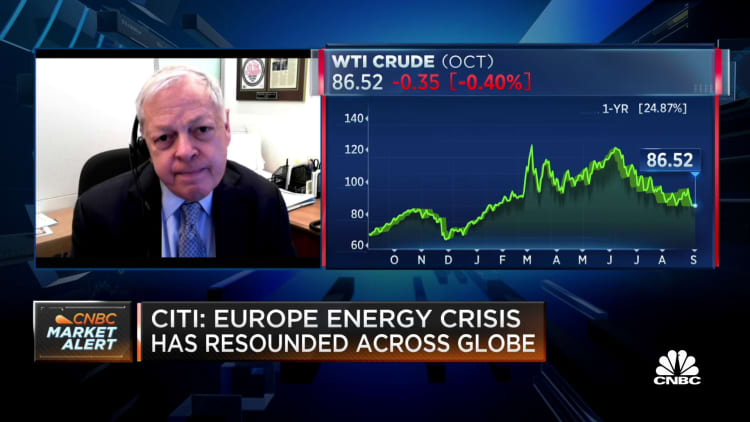A photo of a natural gas flare burning near an oil pump jack at the New Harmony Oil Field in the U.S. on June 19, 2022.
Luke Sharrett | Bloomberg | Getty Images
Germany’s economy minister accused the U.S. and other “friendly” gas supplier states of astronomical prices for their supplies, suggesting they were profiting from the fallout of the war in Ukraine.
“Some countries, including friendly ones, sometimes achieve astronomical prices [for their gas]. Of course, that brings with it problems that we have to talk about,” Economy Minister Robert Habeck told
“The United States contacted us when oil prices shot up, and the national oil reserves in Europe were tapped as a result. I think such solidarity would also be good for curbing gas prices,” he said.
CNBC contacted the White House for a response to the comments and is awaiting a reply.
Habeck, the co-leader of Germany’s Green Party, which is a part of Berlin’s coalition government led by center-left Chancellor Olaf Scholz, said the EU should also do more to address the region’s gas crisis, with countries scrambling for alternative supplies which has pressured prices even more, that was brought about by the war in Ukraine and deteriorating relations with Russia.
Moscow’s state-owned gas giant Gazprom has cut supplies to the bloc drastically over the last few months, largely due to international sanctions and a desire to punish Europe — the EU used to import around 45% of its gas supplies from Russia but is seeking to halt all imports — for supporting Kyiv.
Habeck said the EU “should pool its market power and orchestrate smart and synchronized purchasing behavior by the EU states so that individual EU countries do not outbid each other and drive up world market prices.”
European market power is “enormous,” it just has to be used, he noted, according to the German news outlet.
Europe is facing a hard winter with gas shortages predicted across the region. Countries like Germany have been largely dependent on Russian gas supplies for decades with massive energy infrastructure, such as the Nord Stream 1 and 2 gas pipelines, designed to bring gas from Russia to Germany via the Baltic Sea.
While the $11 billion Nord Stream 2 pipeline was never even launched, with Germany refusing to certify the pipeline following Russia’s invasion of Ukraine in February, Nord Stream 1 has become a pawn in souring relations between Moscow and Brussels.
Over the summer, gas supplies via the pipeline stopped and started seemingly at Moscow’s whim, although it invariably cited the need for maintenance and sanctions as a reason for halting supplies. But then supplies came to a halt in September.
More recently, Russia and Europe’s energy ties have literally been damaged with the Nord Stream pipelines suffering leaks last month in suspicious circumstances.
Russia denied it had sabotaged the pipelines, with reported underwater explosions damaging the pipes in several places, sending natural gas spewing from the Baltic Sea. The damage prompted an international outcry with the EU vowing a “robust” response to attacks on its energy infrastructure.








